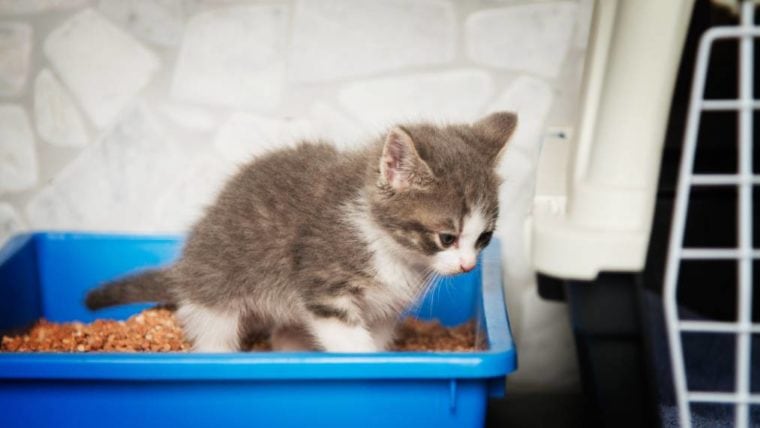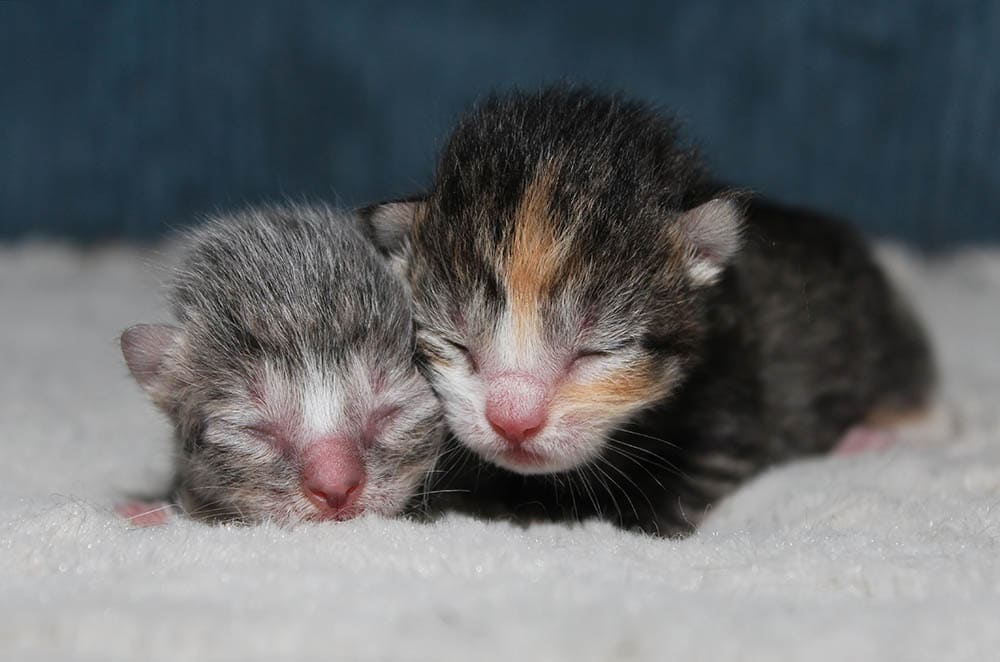
If you’ve just found or have decided to foster a new kitten that’s lost their mom, they may need your help being able to go to the bathroom. After they are born, kittens are very dependent on their mom. The mom will provide milk with vital nutrients for growing and a healthy immune system.
Aside from providing the food that is vital for a kitten’s health, mother cats also stimulate their new kittens to urinate and defecate by licking them. The mom will do this for their kittens for up to the first 4 weeks of their life. If you have a new kitten who is less than a month old, you may need to help them go to the bathroom.
This article will describe simple things you can do to make your new kitten poop and help make sure they are as healthy as possible in their new beginning.
How Do I Know If I Need to Help My Kitten Go to the Bathroom?
Before we get to how you can make your new kitten poop, a few tips on how to tell how old a kitten might be, so you know how best to take care of them. Kittens are born with their eyes closed and they cannot walk or go to the bathroom on their own. They are completely dependent on their mom or foster parents for care. Kittens will start to open their eyes and start crawling around on their own no later than two weeks of age. By three weeks of age, kittens will be wobbly but walking around on their own. Finally, between three and four weeks old, kittens should be able to go to the bathroom on their own and should be walking and playing with their littermates. If you aren’t sure how old your new kitten may be, you can bring it to your veterinarian for them to take a look. Aging is important so that you know how best to provide care for the kitten.

Yes, I Have a Kitten Younger Than 1-Month-Old. Now What?
So now onto the pooping. It’s important to know that you will need to stimulate your new kitten to go to the bathroom after each meal. Kittens sometimes go every time they are stimulated so come prepared. If your kitten is vomiting, regurgitating, or not wanting to eat their formula, you can also try to stimulate your kitten to go to the bathroom before feeding them. Stimulating them to urinate or defecate may make them more comfortable and able to eat without getting sick.
How often you should feed your new kitten depends on their age. If they are less than a month old, a good rule of thumb is to feed the kittens every few hours around the clock.
To stimulate your new kitten to use the bathroom after they eat, you will first need to get a clean, soft washcloth, cotton balls or a clean soft towel.
Next, run the cloth or cotton balls under warm water and ring them out so that they are moist but not dripping wet. Do not use any lotions, creams, oils, or products either on the kittens’ skin or on the cloth as they may be fatally toxic.
Take the rung-out cloth and gently rub the kitten’s belly, anal area and genital area while holding the kitten in your other hand. Move your hand in a small circular motion using very gentle pressure. This motion and pressure imitate a mother cat licking her babies.

What To Expect
The new kitten should start to urinate or defecate within about a minute. Once they have stopped going to the bathroom, you can stop the motion. If the kitten is pushing to poop, keep gently rubbing their anal area until they are done going and have stopped pushing.
If the kitten has not started to go with this stimulation after a minute, stop the motion. Excessive pressure and/or rubbing may irritate the kittens’ skin and cause a wound.
Once the kitten eliminates, you can use the damp cloth or cotton balls to gently wipe them clean. A plain unscented baby wipe can be used for messier situations.
A kitten should urinate after most if not all feedings and defecate at least once a day if not more.
Conclusion
Now that you have a better idea what to expect from your new foster or orphaned kitten in the first few weeks of life, take a moment to congratulate yourself. Being a new “parent” is hard! Kittens take a lot of work when they lose their mom and will need continued support for the first few months of their life. Getting through the first 1-2 months is the most difficult. Once your kitten can use the bathroom on their own and you can transition them to a litterbox, you will finally start to get more sleep. Enjoy those moments because your new kitten won’t be that small and cute forever!
See Also:
- Why Won’t My Kitten Poop? (5 Potential Causes)
- How to Bottle Feed a Kitten the Right Way (Vet Answer)
Featured Image Credit: Stefano Garau, Shutterstock







